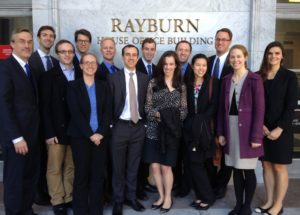Congress Rejects Teacher Preparation Reporting Rule
Congress and President Trump use Congressional Review Act to rescind Obama-era education rule.
Removing the Tax Consequences of Student Loan Discharge
Treasury Department could take action to eliminate taxation of student loan forgiveness.
How Should Schools Regulate Cyberbullying?
Scholar discusses the importance of properly regulating cyberbullying in schools.
The Future of the Education Department’s Power to Cancel Student Loan Debt
The Department only seems to use its compromise power in a very narrow set of cases, but there are signs that the zeitgeist may be shifting.
The Dark Side of Departmental Discretion
New regulations governing student debt leave too much power concentrated with Education officials.
Even for Defrauded Students, Debt Relief is Rarely Granted
Reluctance by Education officials to exercise their debt cancellation powers unfairly punishes students.
Student Loans Should Not Fund the Department of Education
Federal officials should reorient themselves around students’ best interests instead of departmental budgets.
The Department of Education’s Power to Cancel Student Debt
Despite the breadth of the Department of Educations’s debt-cancellation powers, it has failed to employ its powers to their fullest extent.
Should the Education Department Hear Class Actions when Colleges Collapse?
The agency’s proposal to streamline student loan forgiveness claims is laudable, with its potential for a fairer, more efficient process.
An Education in Regulatory Reform
Penn Law students met with experts in Washington to discuss proposals for reforming the regulatory process.
Stricter Rules Bring Challenges but also Cash to Montana Day Care Centers
State authorities revamp day care regulations to meet federal standards and remain eligible for funding.
Rethinking the Compliance Curriculum
Compliance classes should differ depending on students’ career paths and types of risks the class addresses.












